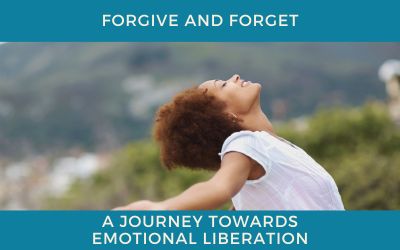Forgiveness is a word that often stirs a pot of mixed emotions. It brings to mind everything from relief and liberation to struggle and conflict. For many of us, it’s a concept wrapped in complexity. There’s the person who wronged us on one side, and then there’s us, nursing wounds that sometimes feel too fresh to touch, let alone heal.
The journey to forgiveness is not a straight path; it’s more like navigating a labyrinth. Each turn holds the potential for revelation or setback. But why even walk this tricky path? Because forgiveness often provides a key to unlocking emotional well-being and inner peace. It gives us the opportunity to reclaim a sense of control and focus on ourselves, rather than dwelling on the pain caused by someone else. Sounds nice, doesn’t it?
A Shift in Perspective: The Heart of Forgiveness
At its core, forgiving someone means changing how you view them—and perhaps even your past experiences. You’re not just saying, “I forgive you,” but also, “I see you as a human being, fallible and imperfect, just like me.”
It means acknowledging that the person who hurt you isn’t a villain in a grand drama but someone capable of making mistakes. Sometimes, they might not even realize the full impact of their actions. This shift in perspective may sound simple, but it’s actually a pretty tall order, especially when the hurt is still fresh and vibrant in your mind.
The Challenge: When Emotions Run High
If you’ve ever tried to reason with someone when you’re angry or upset, you know that emotions can be overwhelming. It’s challenging to shift your perspective when every fiber of your being is pulsating with hurt and resentment. And that’s okay. The first step towards forgiveness is accepting that it’s a process. Sometimes it’s a long, convoluted, emotional roller-coaster of a process. And guess what? That’s perfectly alright.
Choosing to Let Go: The First Step to Healing
At some point—maybe after a good cry, or a long talk with a friend, or even after some time has passed—you might feel ready to begin the process of forgiveness. This is where the magic happens. Choosing to forgive is like unclenching a fist; it’s a release of pent-up emotional tension. It’s a conscious decision to let go of your resentment and focus on your own well-being.
But remember, forgiving doesn’t mean forgetting. It doesn’t mean that you excuse the behavior that hurt you or pretend it didn’t happen. It means that you’re choosing your own mental and emotional peace over holding onto resentment.

Patience is More Than a Virtue; It’s a Necessity
Letting go isn’t something that happens overnight. You can’t just snap your fingers and say, “I forgive you,” and expect all the emotional baggage to vanish. Healing is a journey. There will be days when you’ll feel like you’re making tremendous progress and days when you’ll feel like you’re back at square one. And that’s completely normal.
When you find it difficult to let go, remember that forgiveness is not a one-time act, but a continual process. And while the other person’s actions are beyond your control, your reactions are not. Take your time, be patient with yourself, and remember that you’re doing this for you, not for anyone else.
The End Game: Emotional Liberation
When you finally reach that point—when you’ve let go of the resentment and freed yourself from the emotional chains that bound you—you’ll feel it. It’s an overwhelming sense of relief, like a weight lifted off your shoulders. The journey to forgiveness ends in emotional liberation, which is a prize worth every ounce of struggle and effort.
Closing Thoughts
Forgiveness is complicated, messy, and emotional, but it’s also empowering, liberating, and deeply healing. It’s your choice to make, and you can take as long as you need to make it. So go ahead, take your time, be patient with yourself, and remember: the path to forgiveness is your own personal journey towards emotional well-being.


